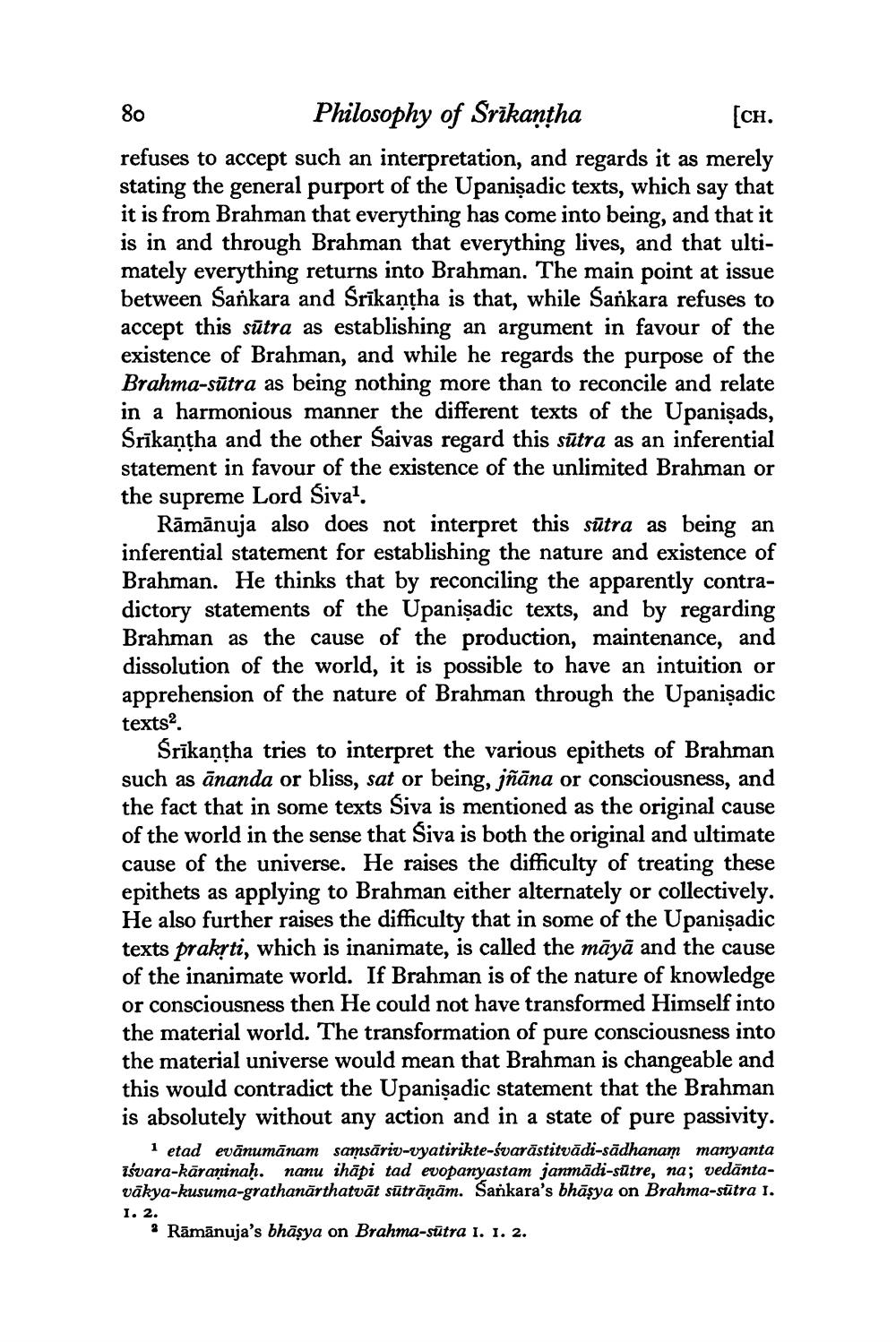________________
Philosophy of Srikantha
[CH. refuses to accept such an interpretation, and regards it as merely stating the general purport of the Upanișadic texts, which say that it is from Brahman that everything has come into being, and that it is in and through Brahman that everything lives, and that ultimately everything returns into Brahman. The main point at issue between Sankara and Śrīkantha is that, while Sankara refuses to accept this sūtra as establishing an argument in favour of the existence of Brahman, and while he regards the purpose of the Brahma-sūtra as being nothing more than to reconcile and relate in a harmonious manner the different texts of the Upanişads, Śrīkantha and the other Saivas regard this sūtra as an inferential statement in favour of the existence of the unlimited Brahman or the supreme Lord Siva.
Rāmānuja also does not interpret this sūtra as being an inferential statement for establishing the nature and existence of Brahman. He thinks that by reconciling the apparently contradictory statements of the Upanișadic texts, and by regarding Brahman as the cause of the production, maintenance, and dissolution of the world, it is possible to have an intuition or apprehension of the nature of Brahman through the Upanisadic texts?
Śrīkantha tries to interpret the various epithets of Brahman such as ānanda or bliss, sat or being, jñāna or consciousness, and the fact that in some texts Siva is mentioned as the original cause of the world in the sense that Siva is both the original and ultimate cause of the universe. He raises the difficulty of treating these epithets as applying to Brahman either alternately or collectively. He also further raises the difficulty that in some of the Upanişadic texts prakrti, which is inanimate, is called the māyā and the cause of the inanimate world. If Brahman is of the nature of knowledge or consciousness then He could not have transformed Himself into the material world. The transformation of pure consciousness into the material universe would mean that Brahman is changeable and this would contradict the Upanisadic statement that the Brahman is absolutely without any action and in a state of pure passivity.
1 etad evānumānam samsāriv-vyatirikte-svarāstitvādi-sādhanam manyanta īśvara-kārañinah. nanu ihäpi tad evopanyastam janmādi-sūtre, na; vedāntavākya-kusuma-grathanārthatvāt sūtrāņām. Sankara's bhāsya on Brahma-sūtra 1. 1. 2.
Rāmānuja's bhāsya on Brahma-sūtra 1. 1. 2.




